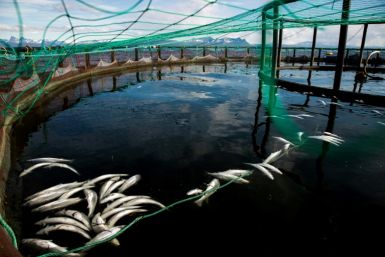Contraceptive Implant Could Lead To Serious Complications

A contraceptive implant approved for use for over 13 years was demanded by thousands of women to be taken off the market through a recent petition. The contraceptive device in question, Essure, is manufactured and marketed by HealthCare Pharmaceuticals and is surgically placed inside a woman's uterus to block the entry of sperm into the woman’s fallopian tubes. The device is made of nickel titanium alloy and a polyester-like fibre called polyethylene terephthalate, or PET, the report said.
The New York Times report added that Essure was fast-tracked by the U.S. Food and Drugs Administration, or FDA, following the release of findings that it was the "the first alternative to surgical sterilization and a quick recovery." However, over 4,000 cases of negative reactions to the implant had surfaced following its release, including those related to back and pelvic pain, months-long menstrual periods and displaced coils that required surgeries to be removed.
The original manufacturer of the implant, Conceptus, had received 16,047 complaints between 2011 and 2013 due to adverse effects. Bayer, which owned a large stake in the company, and Conceptus, maintained that the product's benefits outweigh its risks throughout these period.
In one clinical trial in which women were asked to keep diaries, one out of 10 participants reported experiencing painful intercourse. Moreover, one in eight participants reported having painful menstrual periods within three months of having the implant surgically placed. Eight women also had to undergo surgery to remove the displaced coil.
Like titanium, nickel is a common component of implants, injections and other materials used for medical applications. According to Nickel Institute, nickel-containing stainless steel tools can be "repeatedly and effectively sterilised" using strong disinfectants without affecting their quality. These tools are also not ferromagnetic, making them compatible with MRI, or Magnetic Resonance Imaging, and X-rays.
While generally suitable for prolonged contact with the skin and proven biocompatible for certain applications, nickel-containing stainless steel implants are not "completely free of adverse reactions in the human body," noted the Institute.
Nickel is mined primarily in Canada, Australia and Russia. Amur Minerals Corporation (LSE:AMC), a developing nickel and copper sulfide exploration firm based in the United Kingdom, owns one of the largest nickel projects worldwide. The company is awaiting the approval of its detailed mining exploration and production license from the office of Russian Prime Minister Dmitry Medvedev to be able to mine its Kun-Manie project in The Russian Far East.
According to Russian website Metal Info, the company recently announced it is "ready to invest" $1 billion to develop the project, which was reported to possess resources equivalent to 67 million tons of ore with an average grade of 0.59 per cent nickel (366,000 tonnes) and 0.18 per cent copper (99,000 tonnes).
To contact the writer, email: v.hernandez@ibtimes.com.au





